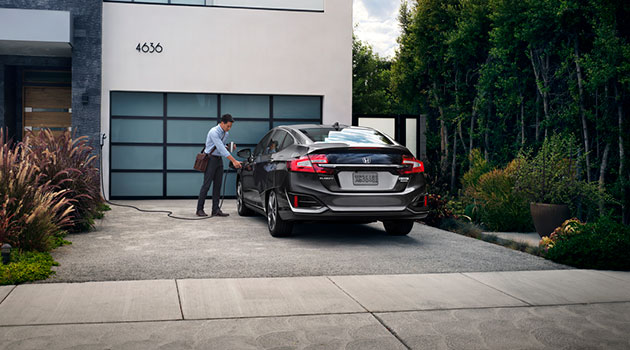Driving is all about speed. And while electric vehicles (EVs) can go just as fast as combustion engine cars, the process of charging an EV battery can take much longer than filling up a gas tank.
In an effort to bring down EV charging times, innovators at Honda Motors are working to develop electric cars that can travel 150 miles on a 15-minute charge by 2022. Key changes will come with reducing the vehicle’s weight, but more so with improvements to the battery itself.
To date, Honda officials have bought batteries from Panasonic, but now, the car manufacturer is looking for a new partner to collaborate with. Instead of working to build larger (and heavier) batteries that would allow the EVs to travel farther (after relatively longer charging periods), Honda has placed a specific focus on keeping the charging time to 15 minutes for a full battery. By establishing this benchmark, Honda aims to reduce the guessing and anxiety around the traveling range of their electric cars, which has been an encumbrance to the EV industry at large.
Currently, electric cars vary with the amount of time it takes for the battery to reach a full charge. The differences usually have to do with the car’s battery, the specific charger, and the kind of outlet the car is plugged in to.
One of the fastest cars on the spectrum is the Tesla Model 3, which can reach a full charge in about 75 minutes. Honda’s Clarity Electric model can power up in just about 3 hours. Now, compare those to a car like the Chevrolet Bolt, which must charge for a full night, or about 10 hours to reach capacity.
Even if Honda and the rest of the world’s carmakers promise to produce perfect electric vehicles, they will still have to wait for EV infrastructure to improve. There are just over 16,500 public charging stations—and 150,000 gas stations—countrywide.
And while gas stations across the country are fairly consistent about the amount of gas pumped (up to 10 gallons per minute), EV charging stations can vary when it comes to charging times. Home chargers often need a full night to charge an EV, while
some public charging stations can take over an hour to fully charge an electric car.
Like Honda, Tesla and Volkswagen are looking to cut down the time commitment needed to charge EVs, but not by focusing on their vehicles as much as focusing on the charging station itself. Tesla’s "supercharger" stations are beginning to pop up around the country, totaling to 900 stations with 6,000 stalls so far. Also, VW's Electrify America project is a plan to invest nearly $2 billion in EV infrastructure across America.
Even when EV users charge their cars to the fullest, there is still the possibility they could find themselves out of battery with no charging ports in sight. In order for the electric vehicle to become a roadway staple, Honda and other electric car makers will continue evolving their EV batteries and charging stations to match (and eventually overtake) the capabilities and capacity of our current, gas-powered vehicles.
